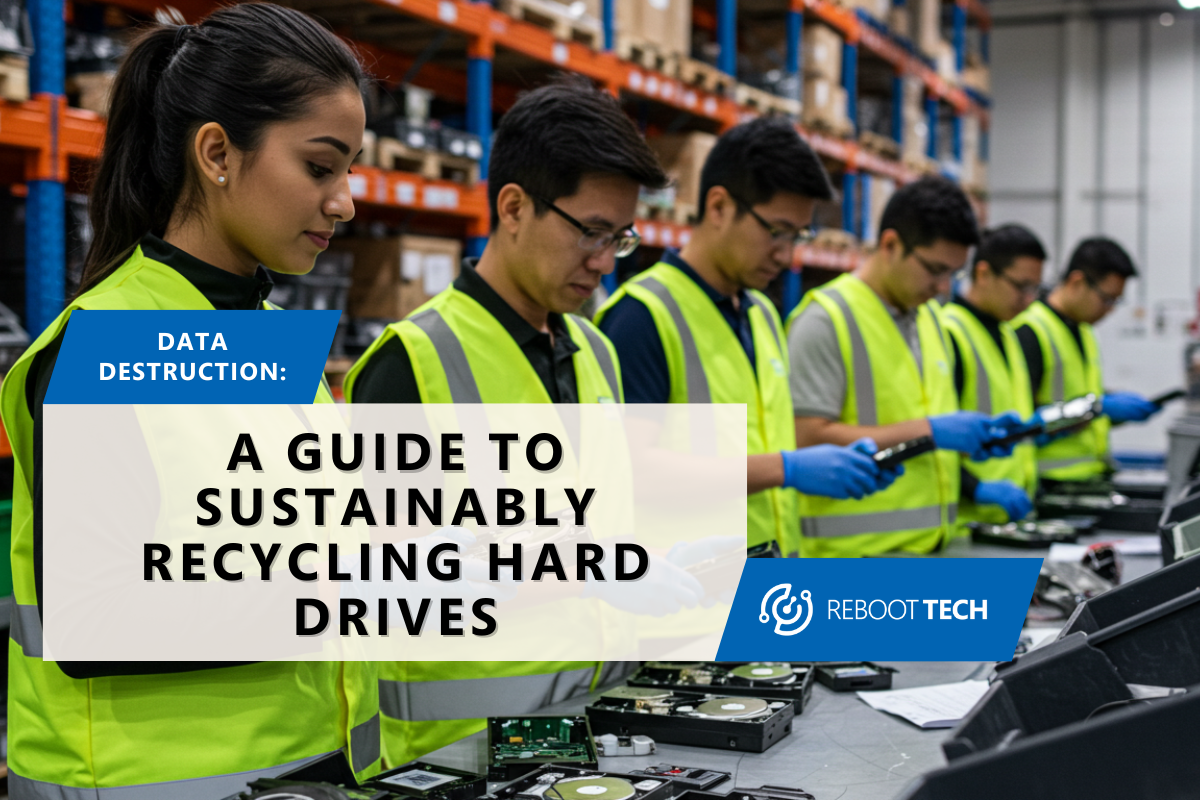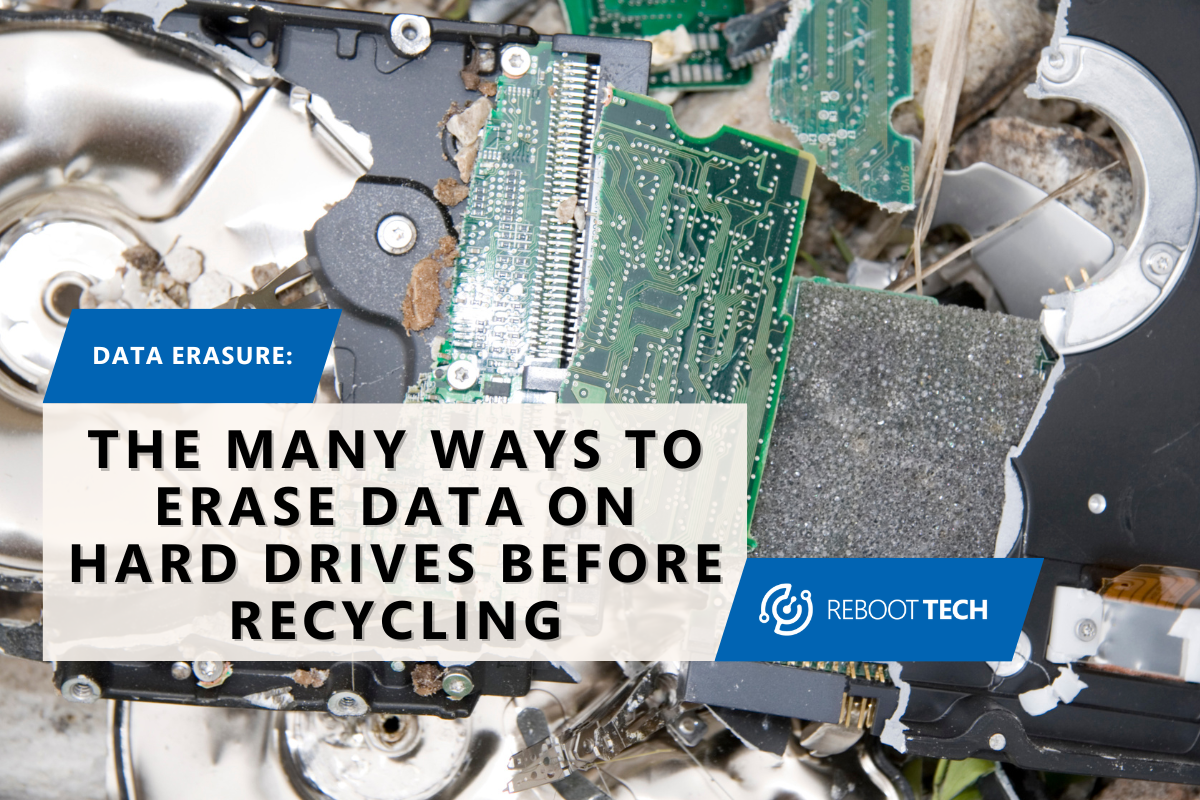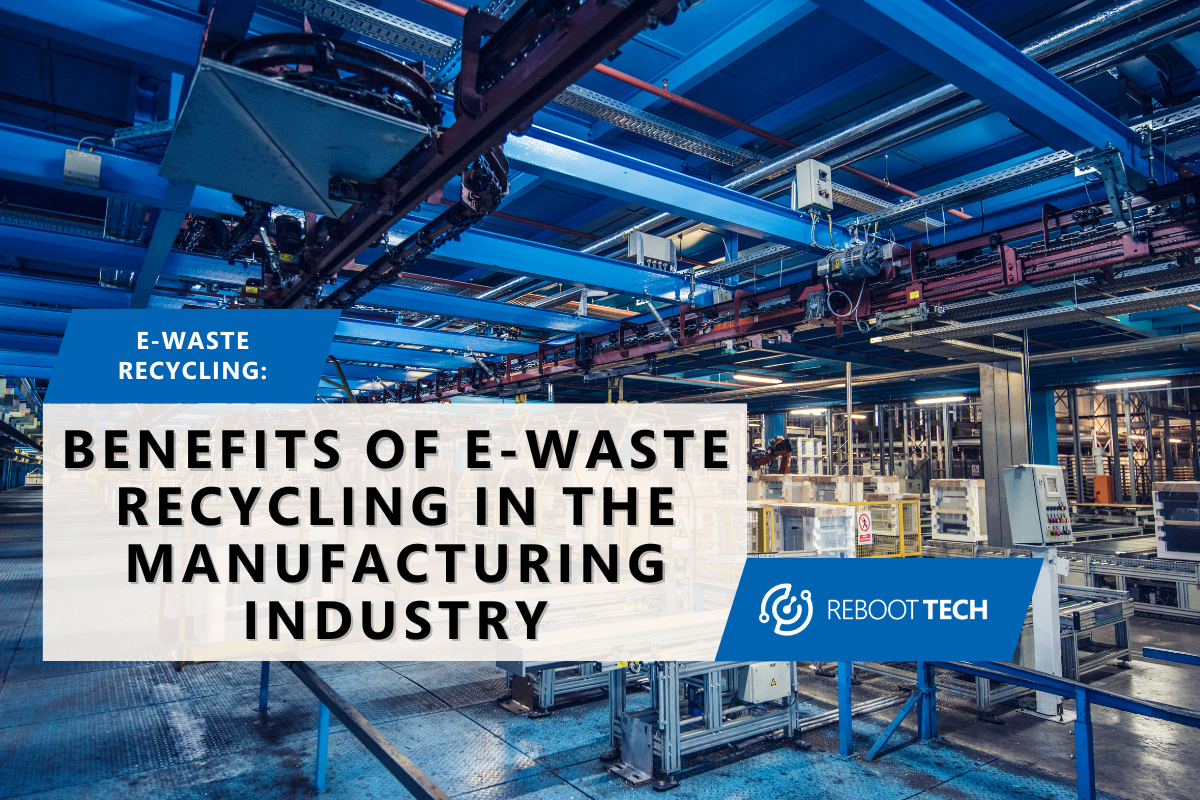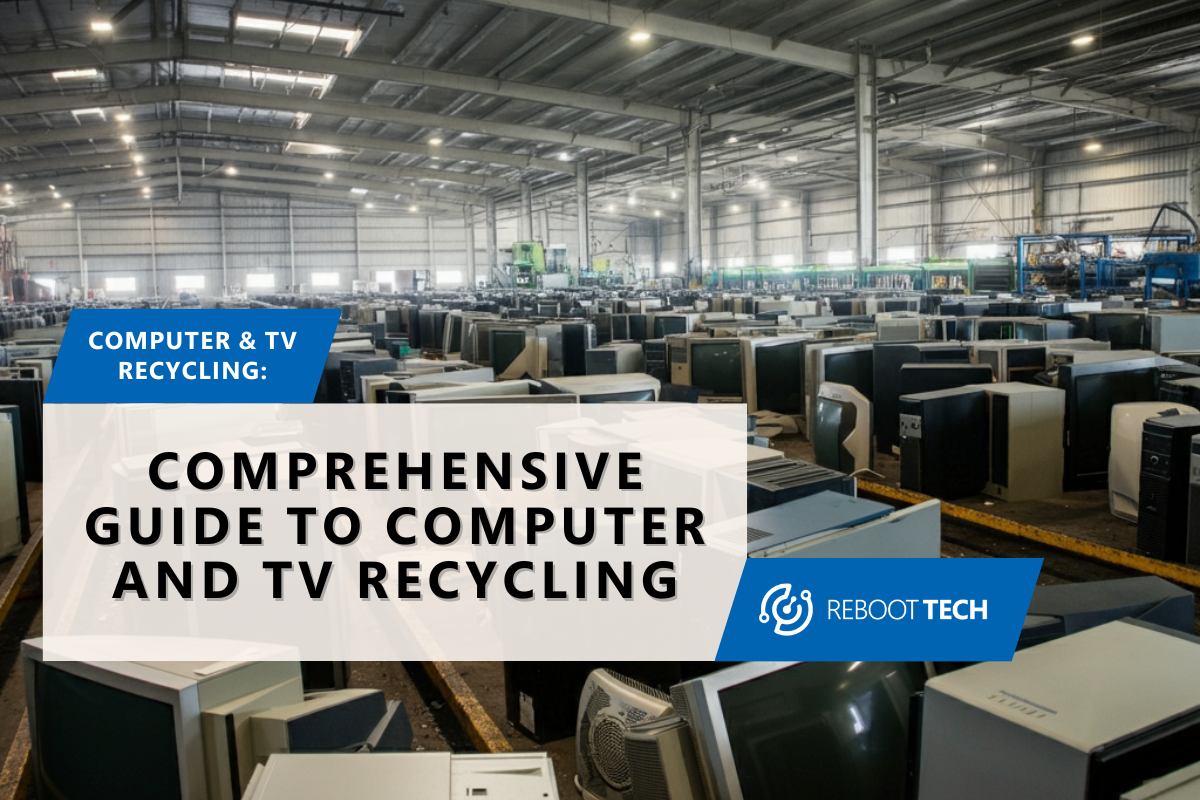
Computer and TV Recycling: A Guide
Every year, millions of computers and TVs are thrown away. This adds to the big problem of electronic waste (e-waste). These devices contain valuable materials like metals and plastics, as well as harmful substances like lead and mercury. Recycling computers and TVs is essential for reducing landfill waste, conserving resources, and minimizing toxic emissions. But knowing how to recycle them properly can be a challenge.
In this guide, we’ll walk you through everything you need to know about recycling computers and TVs. This article provides all the information you need to dispose of electronics responsibly. It covers what to do with old data on computers and how to find certified recycling centers. Let’s get started!
What to Know About Computer Recycling
Recycling computers is a crucial step in reducing e-waste. A typical computer contains various recyclable materials, including aluminum, copper, plastic, and steel. Each part of the computer has a different recycling process, which is why professional recyclers are equipped to handle the process safely and efficiently. By recycling computers, you’re helping conserve precious resources and keeping toxic materials out of the environment.
Why It’s Important: Computers contain small amounts of hazardous materials, such as mercury, cadmium, and lead. When improperly disposed of, these elements can leach into soil and water, posing health risks to humans and animals. Recycling a computer safely ensures that harmful materials are handled in compliance with environmental guidelines.
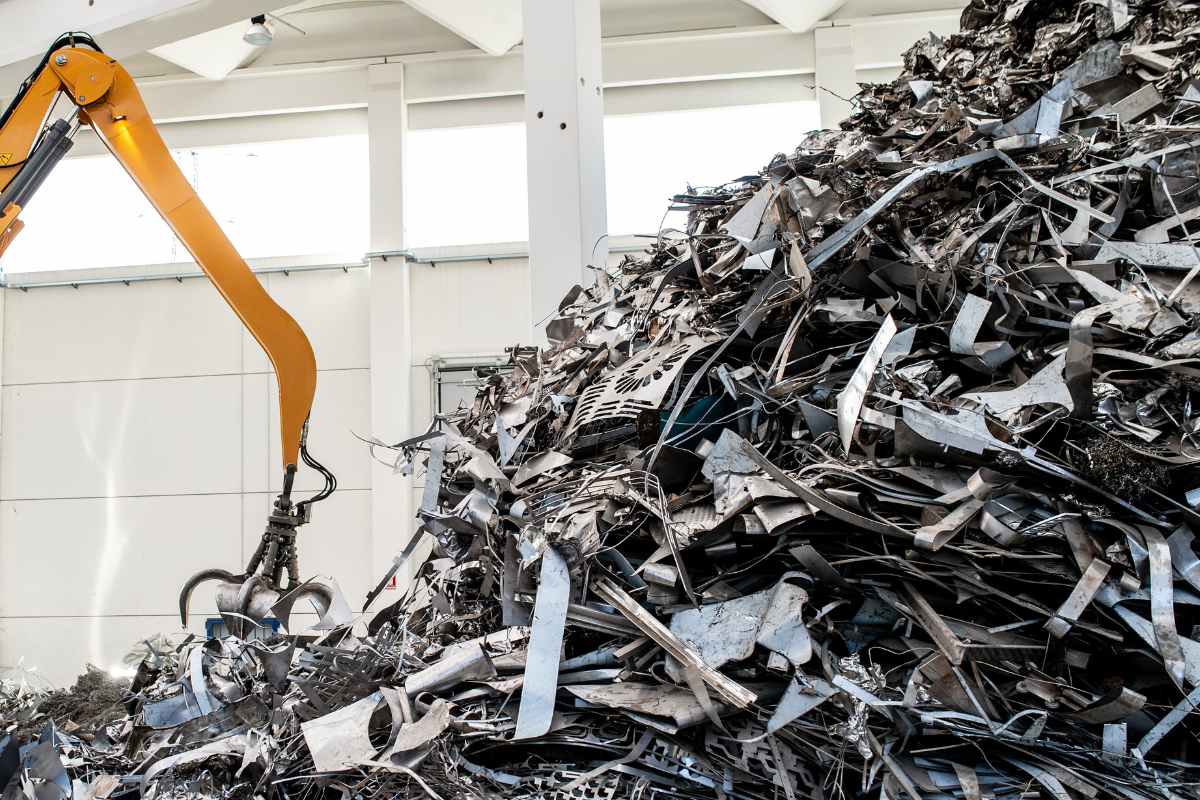
What to Know About TV Recycling
TVs, particularly older models like CRT (cathode-ray tube) TVs, contain hazardous materials such as leaded glass and phosphor. While newer flat-screen TVs are less toxic, they still contain valuable components like metals and plastics that can be recovered through recycling.
Benefits of Recycling TVs: Recycling TVs allows for the recovery of glass, plastic, and metals, reducing the need for new raw materials. It also prevents toxic substances from entering landfills and contaminating ecosystems.
Types of TVs to Recycle: You can recycle CRT TVs, flat-screen TVs (LCD, LED, and plasma), and even newer smart TVs. Each type has different components and should be handled by professionals who know the appropriate disposal process.
Deleting Data from Computers Before Recycling
Before recycling a computer, it’s essential to ensure that all personal data is completely erased. Data security is a top concern, especially with the growing risk of cyberattacks. Here are some effective methods to delete data before recycling:
1. Data Wiping Software: Programs like DBAN (Darik’s Boot and Nuke) allow you to securely wipe all data from your computer, making it difficult for hackers to retrieve it.
2. Factory Reset: While not as thorough as data wiping, a factory reset can remove personal data and restore your computer to its original settings. This method is ideal if you’re planning to resell or donate the computer.
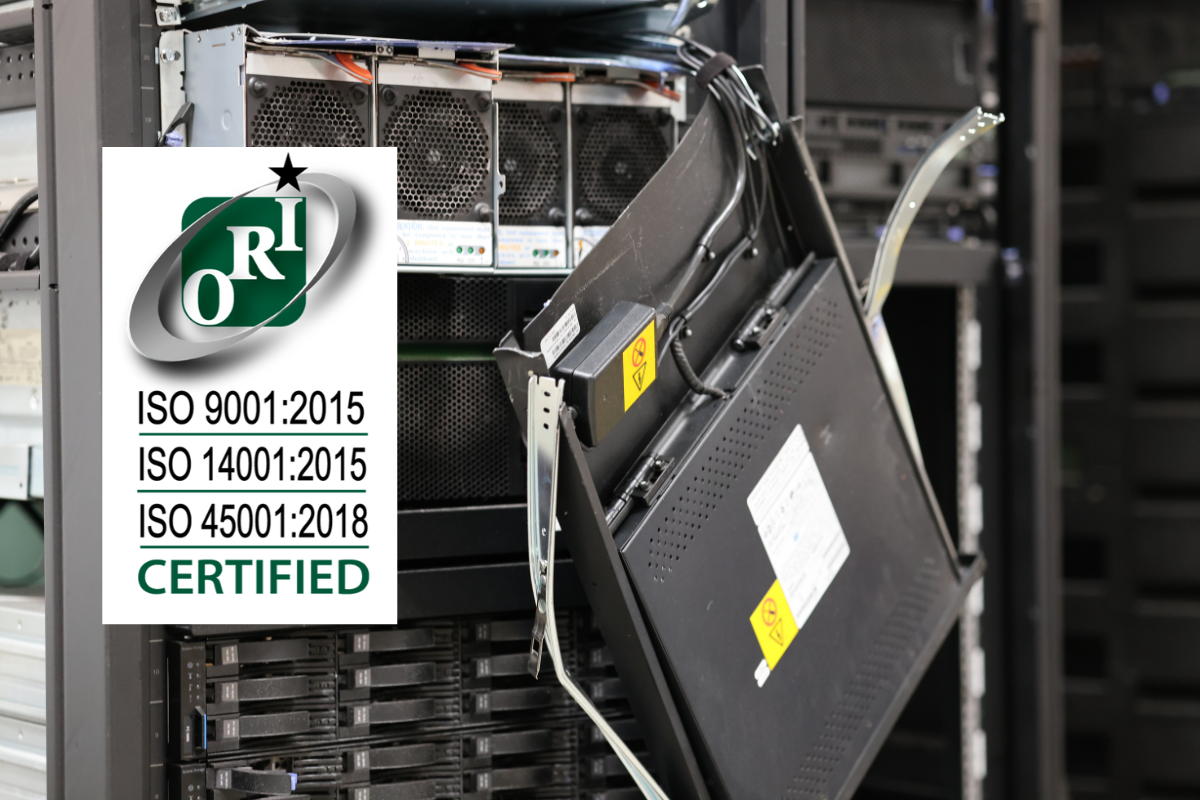
3. Hard Drive Destruction: For ultimate data security, physically destroy the hard drive. Certified e-waste recyclers offer services that can shred or dismantle the hard drive to ensure no data can be retrieved.
By taking these steps, you protect yourself from potential data breaches and ensure that your information won’t fall into the wrong hands.
Where to Find Certified E-Waste Recyclers
Certified recyclers are organizations that meet specific environmental and data protection standards. They follow strict guidelines to ensure e-waste is handled in a way that minimizes its impact on the environment. When recycling computers and TVs, it’s essential to choose a certified recycler for peace of mind.
Why Certification Matters: Certified recyclers often have certifications like R2 (Responsible Recycling) or e-Stewards, which require them to follow responsible recycling practices. They are audited regularly to ensure compliance, so you know your e-waste is being handled responsibly.
How to Find a Certified Recycler: Many communities offer e-waste recycling programs in partnership with certified recyclers. You can also search online for certified e-waste recycling centers or contact local waste management agencies for recommendations.
Examples of Certified Recyclers:
- Reboot Tech: A certified e-waste recycler specializing in secure data destruction and responsible recycling practices.
- Best Buy and Staples: Many large retailers offer e-waste recycling services, often through certified partners.
Steps to Recycle Your Computers and TVs
Recycling your electronics is easy when you know what to do. Here’s a simple guide to follow:
1. Backup Your Data: Before you delete data from your computer, make sure to back up any important files to a secure location.
2. Erase All Personal Data: Use a data-wiping software or physically destroy the hard drive if data security is a concern.
3. Remove Batteries and Accessories: Some recycling centers may require you to remove batteries or accessories from your device.
4. Drop-Off or Schedule a Pickup: Locate a certified recycler in your area and arrange to drop off your items or schedule a pickup if available.
5. Get a Certificate of Recycling: Many certified recyclers offer a certificate of recycling, which provides proof that your electronic waste has been responsibly handled.
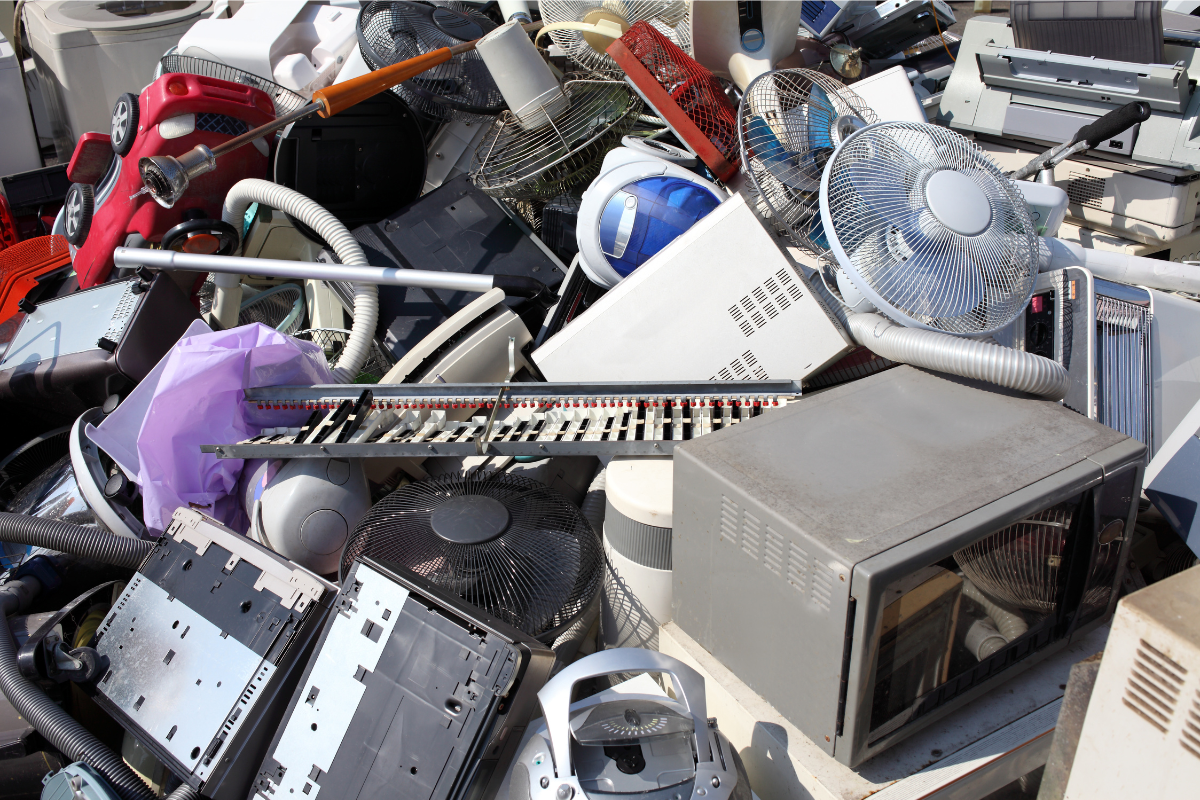
Benefits of Recycling Computers and TVs
Recycling electronics like computers and TVs offers numerous environmental and economic benefits:
- Conserves Resources: By recycling, we recover valuable metals and materials that can be used to manufacture new products.
- Reduces Greenhouse Gas Emissions: Recycling reduces the need for mining new resources, lowering the emissions associated with production.
- Protects the Environment: By recycling e-waste, we reduce the amount of toxic waste entering landfills, protecting water and soil from contamination.
- Creates Jobs: The e-waste recycling industry provides jobs for individuals trained in electronics recycling and materials recovery.
Final Thoughts on Recycling Your Electronics
Recycling computers and TVs is a simple yet impactful way to reduce your environmental footprint. With certified recyclers available, responsibly disposing of your old electronics has never been easier. By taking a few extra steps to erase data and choose certified recyclers, you can make sure your e-waste is managed securely and sustainably.
Whether you’re recycling a single device or managing e-waste for a business, remember that every item recycled helps conserve resources and protect the environment. So next time you’re ready to upgrade, consider recycling your old electronics with a certified provider.
This guide has shown how easy it can be to recycle your computers and TVs while protecting the environment and ensuring data security. Make the responsible choice today and contribute to a cleaner, safer planet for future generations!


